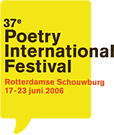Poet
|
Jacques Roubaud 1932 country: Netherlands Frans |
wordt momenteel gerekend tot de groten van de Franse literatuur. Hij noemde zich ooit ‘vervaardiger van wiskunde en poëzie’. Hij is dichter, vertaler, essayist en onvermoeibaar verdediger van de moderne poëzie. Uit zijn werk spreekt een fascinatie voor logica; op een verrassende manier past hij in zijn gedichten ‘wiskundige strategieën’ toe. Roubaud maakt deel uit van de ‘Werkplaats voor Potentiële Literatuur’ (OULIPO). Het oeuvre van Jacques Roubaud bestaat naast poëzie uit talloze vertalingen.
Thirty-two years after the first collection, he published La forme d’une ville change plus vite, hélas, que le coeur des humains (‘The form of a city changes faster, alas, than the hearts of people’), which contains two new series of (partly bizarre-looking) sonnets, as well as poems that come straight from the OULIPO workshop. Roubaud’s fascination for formal logic also returns here, notably in the cycle ‘Six Logical Pieces’, which he read at the 1997 Poetry International Festival. Roubaud’s surprising way with logic was already known to readers of the collection La Pluralité des mondes de Lewis, translated as The Plurality of Worlds of Lewis (1991). Apart from poetry, Jacques Roubaud has published numerous translations, of modern American as well as traditional Japanese poetry. He has rewritten texts from France’s ancient heritage, notably the tales of the Holy Grail; he is the author of prose books, such as the Hortense trilogy, and an ongoing semi-autobiographic project, begun in 1989, which has produced four books so far. Finally, Jacques Roubaud is an untiring champion of poetry in, among other publications, Poésie, etcetera: ménage (1995), in which he makes a clean sweep of popular prejudices about contemporary poetry. Roubaud’s work has been widely translated. Author: Jan H. Mysjkin Translated by Ko Kooman Jacques Roubaud (France, 1932) is counted among the leading French literati today. He is a poet, translator, essayist, and indefatigable champion of modern poetry. His work betrays a fascination for logic; he applies ‘mathematical strategies’ to his poems, with surprising effect. Roubaud is a member of the experimental ‘Workshop for Potential Literature’ (OULIPO). He has been widely translated. Poets: |


